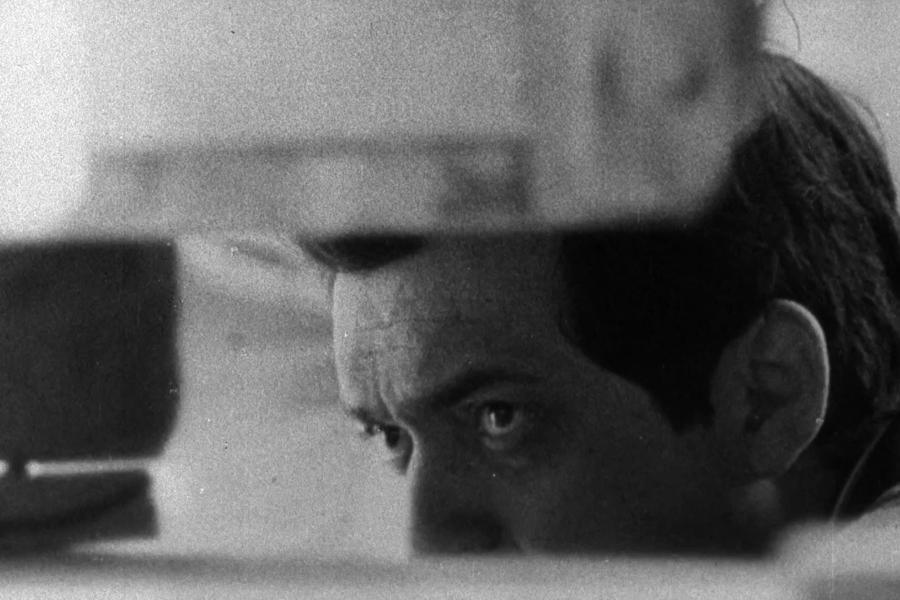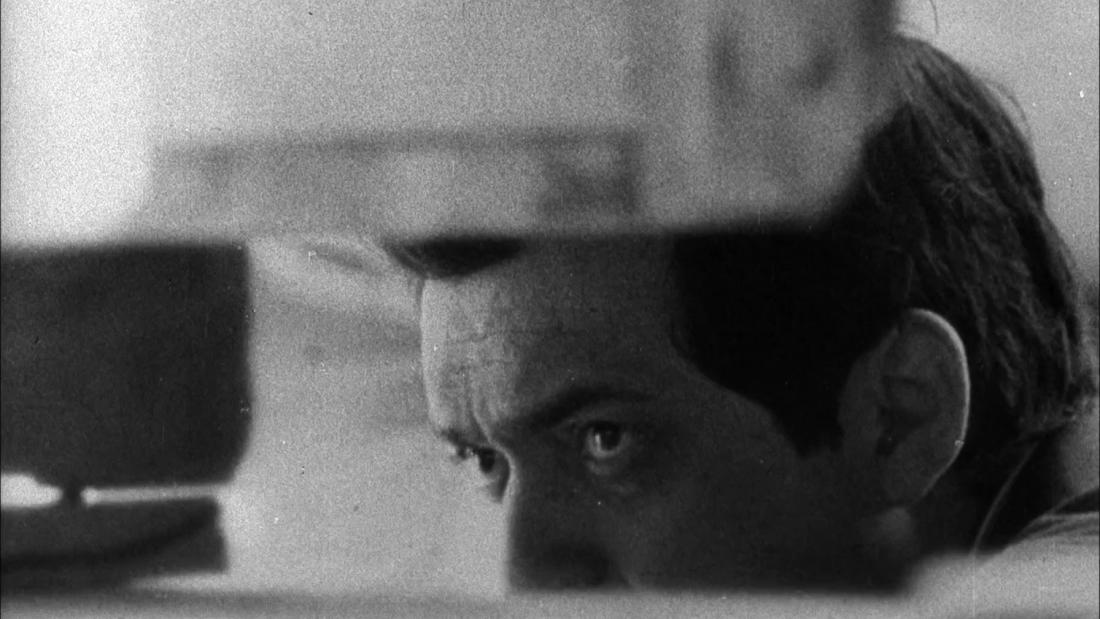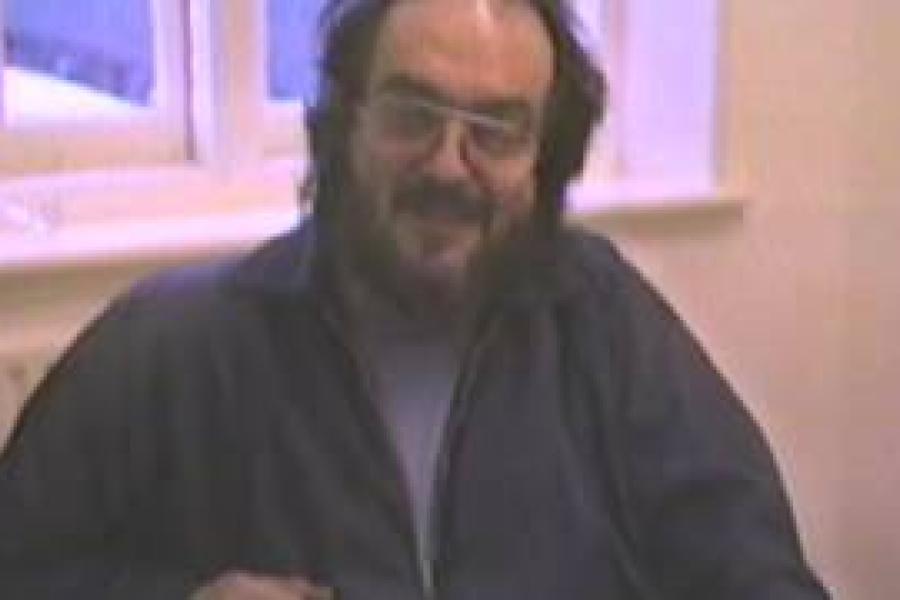Many of the 13 films he made – including 2001: A Space Odyssey (1968), A Clockwork Orange (1971) and The Shining (1980) – are still revered today and remembered as some of the best movies ever produced.
To coincide with the anniversary of his death on March 7 1999, I have co-authored the first full-length biography of Kubrick in more than two decades. Based on the latest research into Kubrick, access to his archive at the University of Arts London, other repositories around the world, family members, cast and creatives, we have delved into his life in detail that few others have achieved.
Shy but not reclusive
During his life Kubrick was famously shy with the media, and frequently interpreted as reclusive. He granted very few interviews, and only when he had a film to publicise. He learned early on that he was not good at promoting his films personally. In the few interviews with Kubrick that survive, he comes across as nervous and ill at ease.
Kubrick was so shy and protective of his private life that few people recognised him publicly. Though born and brought up in New York, he settled in England in the 1960s and remained there. He could wander into Rymans in St Albans and buy stationery (he loved paper, pens and the like) or get a new pair of spectacles and no one would recognise him. It helped that he often used his brother-in-law’s name when doing so.
In fact, Kubrick was such an unfamiliar figure that an imposter went around London’s clubs and bars in the early 1990s pretending to be him. The imposter was only found out when Kubrick started receiving strange phone calls from spurned lovers and bars with huge unpaid drinks tabs.
Kubrick archive
His archive only opened in 2007, but it provides an insight into this extremely private director’s world as never before. Kubrick was a hoarder and held on to the miscellany and detritus of his personal and professional worlds. This included high school yearbooks, photographs he took for Look magazine, receipts, bills, invoices, as well as the voluminous amount of material a film production (especially a Kubrick production) generated.
Through studying this archival material, combined with our new interviews, we learned about the human being behind the mythology. Kubrick was a film director but he was also a son, brother, husband, father and friend.
He liked to entertain, chat, make jokes and cook. He loved making American-style fast food and huge sandwiches, often using a microwave as he was a lover of gadgets, adopting new technology as soon as it became available. This was as true of his private life (where he used car phones, pagers and computers) as his working life where he was an early adopter of Steadicam cameras and the Avid editing system.
He had a fear of flying, but it was based on his own knowledge as a trained pilot and frequent monitoring of radio traffic control. It’s not true that he never went over 30mph in a car, as has been claimed. Rather, he loved cars – fast German ones in particular – but frequently crashed them.
Kubrick at work
We uncovered much about Kubrick’s working practices too. Kubrick was a master of the insurance claim. He never hesitated to file one following an accident or fire on set. Not only did this help him to recoup his budget but it also gave him precious time to regroup and think about his options.
We also discovered how Kubrick had to beg, borrow and virtually steal to get most of his projects greenlit. It wasn’t until he signed with Warner Brothers in the 1970s – from A Clockwork Orange onwards – that he had a permanent financial backer. But even then he wasn’t guaranteed funding if the project wasn’t right.

Kubrick was famously shy in public. Mayimbú/Wikimedia
And those projects included the famously never made biopic of Napoleon as the time wasn’t right, or his never-to-be-made Holocaust film, Aryan Papers, which lacked a big star and came too close on the heels of Steven Spielberg’s Schindler’s List.
It is also tempting to wonder what would have happened had he made the film Burning Secret in 1956, with MGM studios, with whom he had signed a contract. Would he have become another studio stooge or been fired for being too much of a maverick? What would have been the implications for his career?
While we can only imagine how those projects would have turned out, what remains is an extraordinary body of work that includes thousands of photographs, three documentaries and 13 feature films. Stanley Kubrick may have shunned the limelight, but his films have had a profound influence on the movie and television industries, as well as a lasting impact on popular and political culture.

This article by Nathan Abrams, Professor of Film Studies at Bangor University is published under a creative commons licence by The Conversation. Read the original article here.


